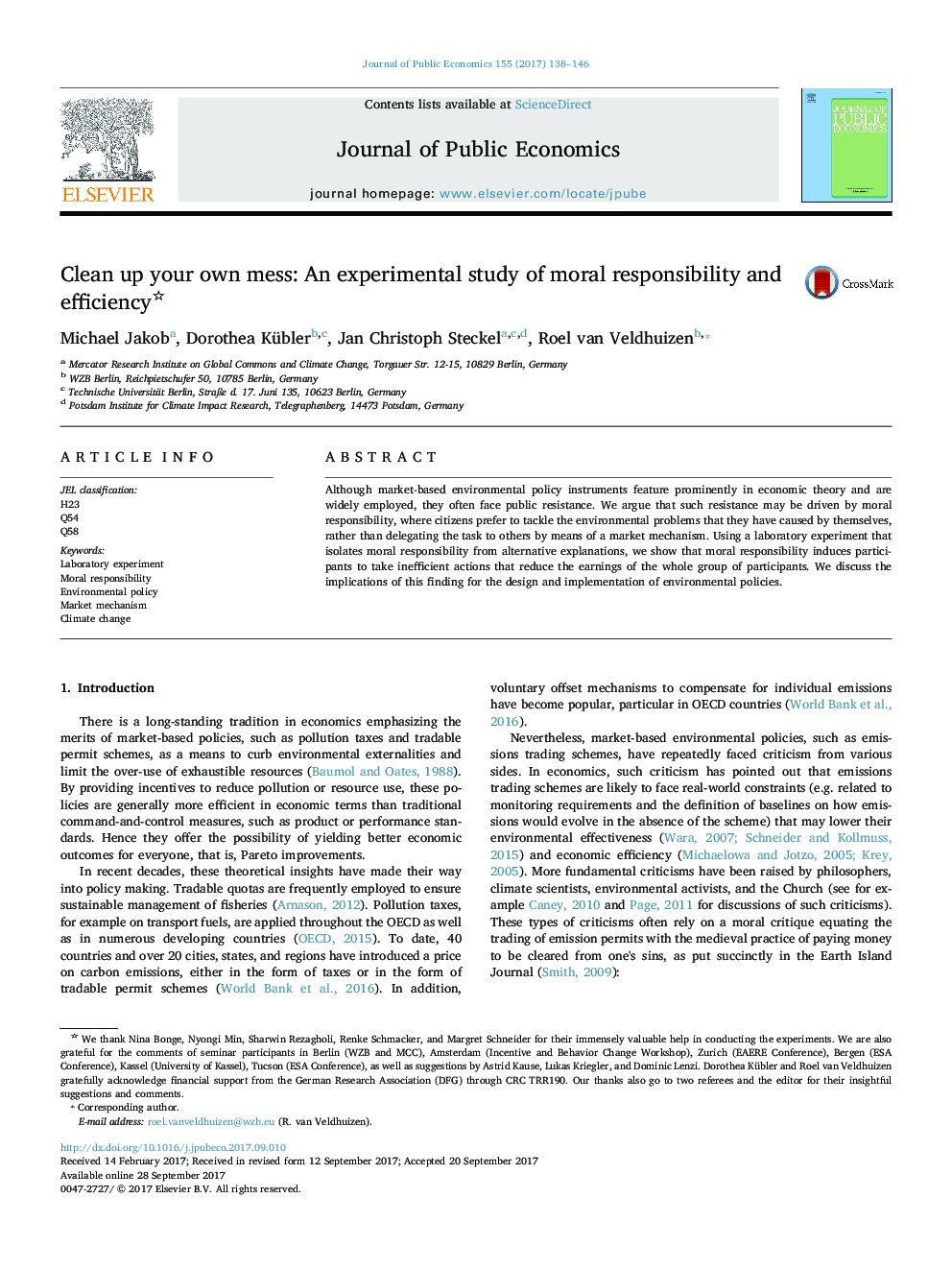| Article ID | Journal | Published Year | Pages | File Type |
|---|---|---|---|---|
| 5101749 | Journal of Public Economics | 2017 | 9 Pages |
Abstract
Although market-based environmental policy instruments feature prominently in economic theory and are widely employed, they often face public resistance. We argue that such resistance may be driven by moral responsibility, where citizens prefer to tackle the environmental problems that they have caused by themselves, rather than delegating the task to others by means of a market mechanism. Using a laboratory experiment that isolates moral responsibility from alternative explanations, we show that moral responsibility induces participants to take inefficient actions that reduce the earnings of the whole group of participants. We discuss the implications of this finding for the design and implementation of environmental policies.
Keywords
Related Topics
Social Sciences and Humanities
Economics, Econometrics and Finance
Economics and Econometrics
Authors
Michael Jakob, Dorothea Kübler, Jan Christoph Steckel, Roel van Veldhuizen,
